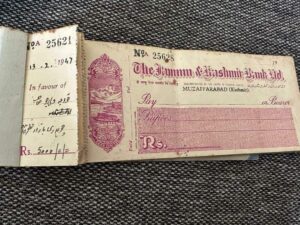The Impact Of Extravagant Customs On Marriage Delays in Kashmir:A Report On 50,000 Unmarried Women

By Meer Altaf
In Kashmir, approximately 50,000 women have surpassed the conventional marriageable age due to the financial and social burdens of culturally ingrained wedding customs. Social activist Zarif Ahmad Zarif has highlighted that these traditions and extravagant ceremonies have turned marriage into an expensive undertaking, leading to prolonged delays. This report delves into the reasons behind these delays, their impact on Kashmiri society, and potential solutions.
Key Factors Contributing to Marriage Delays in Kashmir
- High Costs of Marriage Ceremonies
Traditional Kashmiri weddings often involve multiple costly rituals, including grand feasts, dowries, and extensive celebrations. Meeting these societal expectations is financially overwhelming for many families, hindering their ability to arrange timely marriages. - Social Pressure and Cultural Expectations
The societal norms around marriage in Kashmir place immense pressure on families to organize elaborate ceremonies. Families fear social criticism if they deviate from these customs, even if it means going into debt or facing financial challenges. - Impact on Women’s Lives
The societal stigma attached to remaining unmarried beyond a certain age affects women’s mental and emotional well-being. The delay also limits opportunities for personal growth and can create additional social pressures for the family. - Economic Strain on Families
Families often resort to loans or selling valuable assets to meet the financial demands of extravagant weddings, leading to long-term economic challenges and instability. - Educational and Career Implications
Many young women face restrictions on pursuing higher education or career ambitions, as the focus remains on marriage. Waiting for marriage can hinder personal growth and limit opportunities for independence and self-sufficiency.
Addressing the Issue: Potential Solutions for Reducing Marriage Delays
- Promoting Simple Marriages
Community leaders and religious authorities can advocate for simplified marriage ceremonies, reducing the burden of traditional rituals. Normalizing simpler marriages could lessen the social and financial pressures on families. - Awareness Campaigns to Shift Attitudes
Educating communities about the financial and social impacts of lavish weddings could lead to a change in societal expectations. Raising awareness about the benefits of simplicity and financial stability over elaborate celebrations may create positive cultural shifts. - Financial Support Systems
Establishing community-based support funds or affordable loan options for wedding expenses could ease the burden on low-income families, preventing further delays due to financial constraints. - Empowering Women through Education and Independence
Encouraging women to pursue education and careers provides them with alternative pathways for personal growth and stability, allowing them to build their lives beyond marriage expectations.
Conclusion
The issue of delayed marriages in Kashmir is a complex socio-economic challenge, rooted deeply in cultural traditions and societal expectations. Simplifying marriage rituals, changing social attitudes, and empowering women can help alleviate the pressures that contribute to marriage delays. By embracing these changes, the Kashmiri community can foster a healthier, more balanced approach to marriage, promoting both social and economic well-being.








